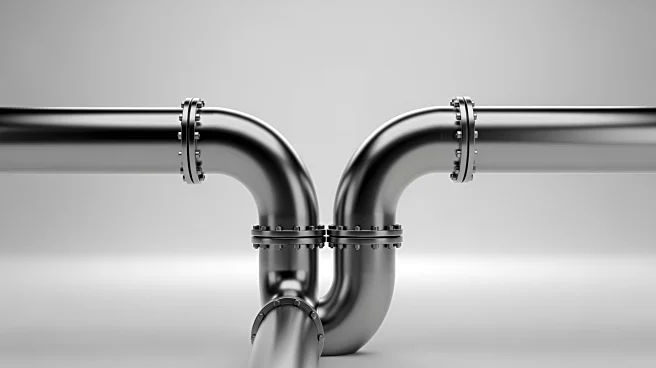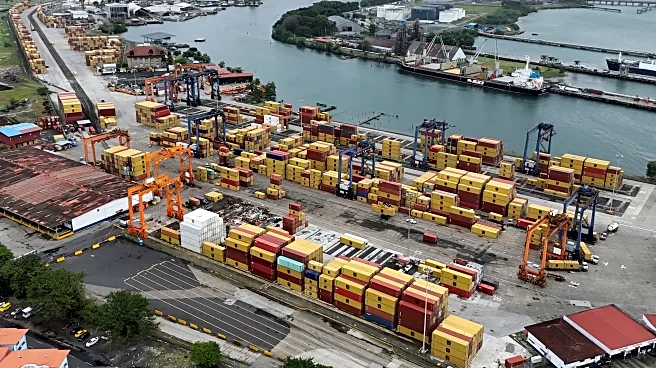What's Happening?
Kriti Industries India, a prominent manufacturer of polymer pipes, has announced the approval of a merger with its wholly owned subsidiary, Kriti Auto Engineering Plastics Private Limited. The decision
was made during a board meeting on November 8, 2025, following recommendations from the audit committee. The merger aims to simplify the group structure, reduce administrative duplication, and achieve economies of scale. Kriti Industries reported a net worth of Rs. 21,655.10 lacs and a turnover of Rs. 30,979.05 lacs as of September 30, 2025. The subsidiary, which has discontinued operations, has a net worth of Rs. 965.19 lacs. The merger involves no cash consideration, simplifying the transaction. Regulatory and statutory approvals are required before finalization.
Why It's Important?
The merger is significant for Kriti Industries as it seeks to streamline operations and improve efficiency. By consolidating its subsidiary, the company aims to reduce costs associated with legal and regulatory compliance and eliminate unnecessary administrative processes. This strategic move could enhance shareholder value and resource allocation, positioning Kriti Industries for better long-term growth. The merger reflects a broader trend in corporate restructuring, where companies seek to optimize their operations and improve competitiveness in the market.
What's Next?
The merger is subject to necessary regulatory and statutory approvals. Shareholders and regulatory bodies will need to consent to the amalgamation before it can be finalized. The company will likely focus on integrating operations and realizing the anticipated benefits of the merger. Stakeholders will be watching closely to see how the consolidation impacts the company's performance and market position.
Beyond the Headlines
The merger could have deeper implications for the industry, highlighting the importance of strategic restructuring in maintaining competitiveness. It may prompt other companies to consider similar moves to optimize their operations and reduce costs. The focus on achieving economies of scale and simplifying business processes could lead to long-term shifts in how companies approach growth and efficiency.









